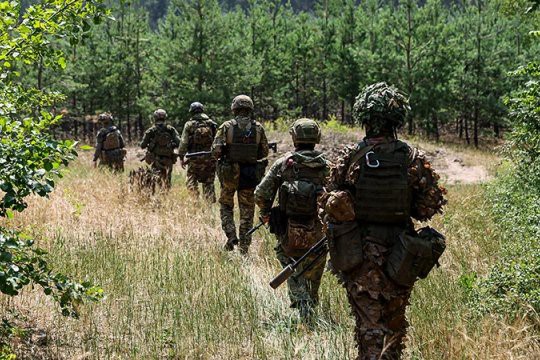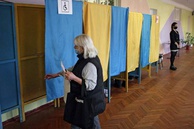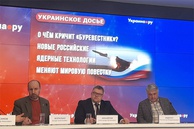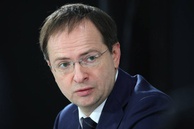The Ukrainian and Israeli crises are like two interconnected vessels. It is becoming increasingly clear that the West views the Israeli crisis as a backup option for a reboot for itself. Having failed to break Russia in Ukraine, and with Moscow, seemingly unaffected by sanctions, waging a lengthy, complex and tough struggle, the West, with its generally underperforming military-industrial complex (especially the European one) needs both a respite and continued war. This is why Volodymyr Zelensky declares his readiness for negotiations, while simultaneously stoking up the crisis nixing all possible options for a compromise, which has never been easy to achieve there. The Israeli and Ukrainian crises are now latently connected in many ways. Like in conducting military operations, when, for example, the much-ridiculed anti-drone grills on Russian tanks suddenly appeared on Israel’s "best modern” Merkavas. Regional and global repercussions from conflicts from the standpoint of relations between countries and groups of countries, assessment by countries of the actions and reactions of international organizations in relation to these crises. Changes in the arms market, to which warring ally to send weapons, and how much.
Regarding the Ukrainian crisis, it looks like Kyiv has been tasked with “freezing” the conflict and this can only be done at the negotiating table. Zelensky was forced to accept this option and is now demonstrating guarded willingness to negotiate with Russia and saying that Moscow could participate in the "next peace conference." The first "peace conference" in Burgerstock, Switzerland, was held under the slogan: "Russia has nothing to do at the summit; we will decide everything and let Moscow know." It was a bad idea. The summit, despite putting on a brave face in the disgusting game played by the collective West and Ukraine, turned out to be a failure, yielding no results and criticized by India, China and other countries. Now, speaking about the need for negotiations with Russia, Zelensky still says that this is not his desire at all, that it is just because most countries across the world associate progress in the diplomatic settlement of the conflict with Russia's participation in the next peace conference: "Since the whole world wants them to be at the negotiating table, we cannot be against this." [i] Kyiv plans to prepare a document based on the results of the first summit, "set a date" for Ukrainian diplomats and ask foreign partners to do the same. "So that in November we have a document that will have everything: territorial integrity, sovereignty, etc." That is, Zelensky is ready to talk about peace, but the "document" that he proposes to discuss initially does not take into account Russia's position, outlined by President Putin, which makes negotiations conditional on the withdrawal of Ukrainian troops from the territories of the DPR, LPR, Kherson and Zaporizhia regions, as well as on Kyiv's refusal to join NATO.
At the same time, feeling the mounting pressure of circumstances and allies, Zelensky, in an interview with the French daily newspaper Le Monde, said that Ukraine might be ready to cede part of its territories for the sake of peace, calling this "a very difficult question." [ii] While admitting his readiness to accept territorial losses de jure, since the de facto situation leaves no other options, Zelensky simultaneously justifies himself, stating that "this is not the best option," since Ukraine will lose part of the territory. He does admit, though, that Ukraine may not be able to regain these territories by force: "This does not mean that at this very moment (negotiations with the Russian Federation) we will return to our 1991 borders, but I believe that a fair peace for Ukraine is the restoration of our territorial integrity, but this does not mean that we should do this by military means alone." In an equally important admission, he did not rule out holding a nationwide referendum since “the issue of Ukraine’s territorial integrity cannot be resolved by the president alone, without the Ukrainian people.” It turns out that Kyiv did not need a referendum to start the so-called Antiterrorist Operation (ATO) in 2014, to decide to join NATO and the EU, but the consequences of these actions could now be dealt with through a referendum, thus shifting responsibility to Ukrainian citizens.
There is another inconsistency that we find here. According to Ukrainian legislation, a referendum on territorial issues shall be held on the entire territory of Ukraine. However, the current regime, constitution and laws consider Crimea, the Donbass republics, Zaporizhia and Kherson regions Ukrainian territory. Therefore, according to the Ukrainian constitution, a referendum held without these territories will be illegitimate. Kyiv cannot hold a referendum in these territories - this is the territory of the Russian Federation, the historical lands that became part of Russia based on the results of referendums already held there. This means that if a referendum is accepted in Ukraine as a working scenario, we will be talking about an illegitimate president proposing an illegitimate referendum.
Now let us talk about the murder of individuals who participated in peace negotiations in both crises. In March 2022, Denis Kireyev, a member of the Ukrainian delegation to negotiations with Russia, was killed in Kyiv while being detained by SBU officers. Who needed this and why, we may never know. The Ukrainian Defense Ministry then rushed to say that Kireyev was an employee of the Main Intelligence Directorate and was carrying out a special mission.[iii] This version was readily backed up by the assistant to the head of the presidential office, Mikhail Podolyak, who said: "He [Kireyev] was related to the Main Intelligence Directorate, and his murder <...> had to do with the fact that at that moment (the start of Russia's special military operation - TASS) there was no close coordination between the security agencies. That is, there were certain claims, on the one hand, against him, and on the other hand, they did not have time to resolve these claims in a dialogue format. This is the reason; it is unrelated to the work of the delegation and with the negotiation process as such."[iv] Podolyak made this statement following the publication of an article in The Wall Street Journal, which, citing an unnamed SBU employee, reported that Kireyev was killed because he allegedly engaged in espionage for Russia, while it was claimed that Kireyev also cooperated with the GUR. Therefore, it is safe to assume that Kireyev participated in a certain communication channel between the special services of Ukraine and Russia. Such a channel is always important. However, this was a time when the West was working hard to prevent any negotiating opportunities between Moscow and Kiev, and Kireyev could have become a victim of this effort.
On July 31, the Palestinian Hamas movement reported the death of the leader of its political wing, Ismail Haniyeh, in an attack on his residence in Tehran, where he had arrived to attend the inauguration of the new Iranian president. Hamas blamed Israel and the United States for the assassination of Haniyeh, who was the main negotiator with Qatar and Egypt on the deal with Israel. At the same time, Washington emphasized the role and importance of Ismail Haniyeh, expressing concern that the murder of the head of the Hamas politburo could derail negotiations aimed at clinching a ceasefire deal in the Gaza Strip. [v] There is something else to be seen behind this “concern” and how quickly in difficult situations for Israel Washington changes its position from condemnation to support though. The breakdown of negotiations and the start of a regional war fits in well with the strategy of transferring the burden of controlled chaos to another region. Killing the negotiators is an indication of an interest in keeping the crises going. At the same time, the United States acknowledges the difficulties in ensuring support for the two conflict areas. In the run-up to the November presidential elections, there is much talk going on about problems in financing Ukraine and even in providing non-military support:
“The US government is finding it increasingly difficult to find funds to provide assistance to Kyiv, which entails the need to look for new options in place of direct budget support,” US Special Representative for Ukraine’s Economic Recovery Penny Pritzker said. [vi] At the same time, she states that support is not threatened by politics, since even if Donald Trump is elected President, Ukraine, in her opinion, will still receive “bipartisan support,” but by a lack of resources.
All of a sudden, the Ukrainian crisis became problematic due to its intensity, which requires arms supplies in volumes and within timeframes that neither the US nor Europe are yet ready to provide. Initially, this unpreparedness stemmed from political reasons, and after Washington broke the will of the EU countries, the reasons acquired an economic and technological nature. Therefore, with a possible shift in focus to the Middle East, in Ukraine the West, above all the US, needs some kind of truce, negotiations, in a word - a de-escalation, a freeze. This is the main bet now; this is something the West will be pushing for. This has already been explained to Kyiv, including that it will have to come to terms with some territorial losses. Perhaps, this is the main connection between the crises in the sense that they are trying to manage these crises and regulate the intensity of the confrontation.
Here the issue of red lines in the context of the method of conducting military operations has acquired great significance. Israel is clearly and openly crossing red lines: total destruction and death of thousands of people in the world’s most populated area - the Gaza Strip, and now the murder of the head of the Hamas politburo Ismail Haniyeh, who was in Iran for the inauguration of the country’s new president Masoud Pezeshkian, and who was killed as a result of an attack on his residence in Tehran. This attack and statements about readiness for any type of military action are Israel’s bid for a large-scale regional conflict.
As for Russia, it has not carried out and is not carrying out massive strikes on civilian targets in Ukraine, and not a single leader of the nationalist regime has been eliminated by a precision strike or as a result of a special services operation. Had Moscow done this, they would have cried foul for the whole world to hear. Israel, however, can do whatever it pleases, and Washington's slight disapproval only confirms this. At the same time, massive strikes and killings of representatives of the Kyiv regime are something very much expected from Russia in response to Ukrainian strikes on peaceful cities, which have been going on for ten years now, in response to the cannibalistic statements coming from official representatives of Kyiv. Russia has been provoked to do this for quite some time now so that they could call out "Moscow’s beastly nature."
The views of the author are his own and may not necessarily reflect the position of the Editorial Board.
---------------------------------------------------------------------------
[i] https://www.rbc.ru/politics/31/07/2024/66aa70b39a7947657d7a353a
[ii] https://regnum.ru/news/3905733
[iii] https://www.rbc.ru/politics/06/03/2022/6223cf569a79473a02ae053e
[iv] https://tass.ru/mezhdunarodnaya-panorama/16841029
[v] https://www.interfax.ru/world/973461
[vi] https://tass.ru/mezhdunarodnaya-panorama/21500501
read more in our Telegram-channel https://t.me/The_International_Affairs

 11:36 07.08.2024 •
11:36 07.08.2024 •



























